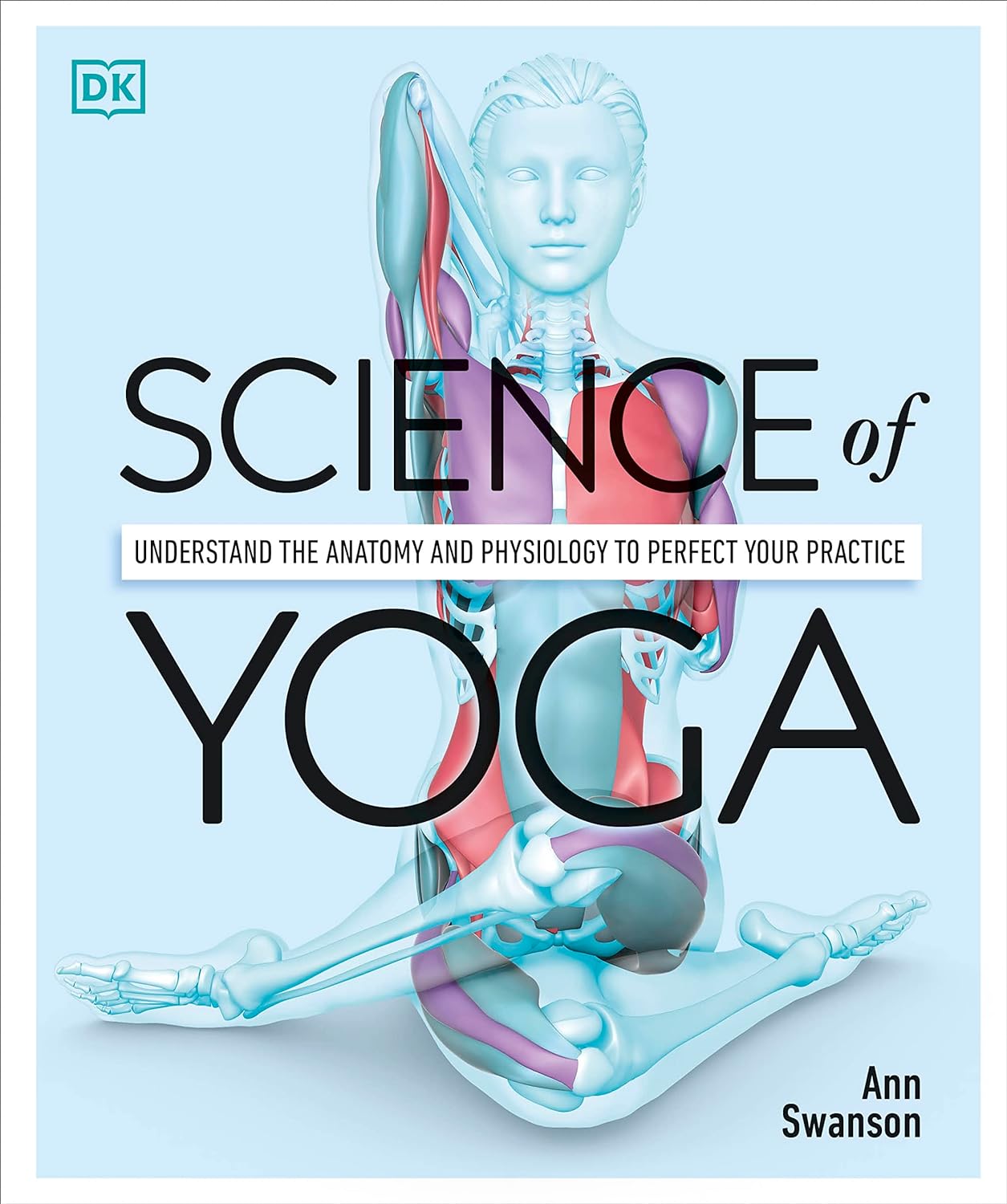Yoga for Mindfulness: Staying Present

Hey there, amazing readers! 🖐️ Just a quick note: yes, we know there are a lot of ads here. Trust us, we get it—it’s not the prettiest look, but they help us keep this blog alive and kicking. Those pesky little ads cover the costs of all the behind-the-scenes magic, from hosting and tech stuff to creating content we hope you’ll love.
We’re committed to delivering quality posts, and your support (even just sticking around despite the ads) means everything to us. So, bear with us, and thanks for helping us keep the good vibes rolling. Now, on to the fun stuff! 😉
TRANSLATE BUTTON AT THE END OF THE ARTICLE
Understanding Mindfulness in Yoga
Mindfulness in yoga is the practice of being fully present in the moment, focusing on the sensations in your body, your breath, and the movements you are making.
It involves bringing your awareness to the here and now, without judgment or attachment to thoughts or emotions.
Mindfulness helps you cultivate a sense of inner peace and awareness that can benefit both your physical and mental well-being.
Yoga is a powerful tool for developing mindfulness as it encourages you to connect with your body and breath, grounding you in the present moment.
By focusing on the sensations in your body as you move through different poses, you can quiet the chatter of your mind and find a sense of calm and clarity.
This mindful awareness can help you become more attuned to your thoughts and emotions, allowing you to respond to them with greater clarity and compassion.
Benefits of Practicing Yoga for Mindfulness
Practicing yoga for mindfulness offers a wide range of benefits for both your body and mind.
Some of the key benefits include:
Stress reduction: Mindfulness in yoga can help reduce stress and anxiety by promoting relaxation and calming the mind.
Improved focus and concentration: By training your mind to stay present in the moment, you can enhance your focus and concentration in all areas of your life.
Emotional regulation: Mindfulness can help you become more aware of your emotions and better regulate them, leading to improved emotional well-being.
Increased self-awareness: Yoga for mindfulness can help you develop a deeper understanding of yourself, your thoughts, and your behaviors.
Physical benefits: In addition to the mental benefits, practicing yoga for mindfulness can also improve flexibility, strength, and overall physical health.
Techniques to Stay Present in Your Practice
Staying present in your yoga practice can sometimes be challenging, especially when distractions or racing thoughts try to pull you away from the moment.
Here are some techniques to help you stay present:
Focus on your breath: Use your breath as an anchor to keep you rooted in the present moment.
Pay attention to the quality of your breath as you move through each pose.
Engage your senses: Tune in to the sensations in your body as you practice yoga.
Notice the feeling of your feet on the mat, the stretch of your muscles, and the rhythm of your breath.
Let go of judgment: Practice observing your thoughts and emotions without attaching judgment to them.
Allow them to come and go without getting caught up in them.
Stay connected: Keep your awareness on the present moment by staying connected to your body, breath, and the sensations you are experiencing.
Practice gratitude: Cultivate a sense of gratitude for your body and the opportunity to practice yoga.
This can help you stay present and appreciate the moment.
Importance of Breath Awareness in Yoga
Breath awareness is a fundamental aspect of yoga practice that can help you stay present and centered.
By focusing on your breath, you can calm your mind, deepen your practice, and connect more fully with your body.
Your breath is a powerful tool for cultivating mindfulness and can provide a sense of grounding and stability in your practice.
Incorporating breath awareness into your yoga practice can help you regulate your emotions, reduce stress, and improve your overall well-being.
Paying attention to the quality of your breath can also help you maintain proper alignment in poses, increase your lung capacity, and enhance the flow of energy throughout your body.
By bringing awareness to your breath, you can create a strong foundation for your practice and deepen your connection to the present moment.
Cultivating Mindfulness Through Body Awareness
Body awareness is another key component of mindfulness in yoga.
By tuning into the sensations in your body as you move through different poses, you can deepen your practice and develop a greater sense of self-awareness.
Paying attention to the alignment of your body, the engagement of your muscles, and the sensations of stretching and releasing can help you stay present and focused in the moment.
Body awareness in yoga can also help you prevent injuries, improve your posture, and increase your flexibility and strength.
By listening to your body and honoring its limits, you can cultivate a deeper connection to yourself and develop a greater sense of compassion and acceptance.
Practicing body awareness in yoga can help you become more attuned to the needs of your body and create a more mindful and balanced practice.
Integrating Meditation into Your Yoga Routine
Meditation is a powerful tool for developing mindfulness and can complement your yoga practice beautifully.
By integrating meditation into your yoga routine, you can deepen your awareness, calm your mind, and cultivate a sense of inner peace.
Meditation can help you quiet the mental chatter, reduce stress, and enhance your ability to stay present in the moment.
You can incorporate meditation into your yoga practice by taking a few moments at the beginning or end of your practice to sit quietly and focus on your breath.
You can also practice mindfulness meditation while holding yoga poses, bringing your awareness to the sensations in your body and the rhythm of your breath.
By combining meditation and yoga, you can create a holistic practice that nurtures both your body and mind.
Using Yoga Poses to Ground Yourself in the Present
Yoga poses, or asanas, can be powerful tools for grounding yourself in the present moment.
Each pose offers an opportunity to connect with your body, breath, and mind, bringing you into a state of mindful awareness.
By focusing on the sensations in your body as you move through different poses, you can cultivate a sense of presence and inner peace.
Some yoga poses are particularly effective for grounding yourself in the present moment.
Poses like Mountain Pose, Tree Pose, and Child’s Pose can help you find stability, balance, and relaxation.
By practicing these poses mindfully and with intention, you can deepen your connection to the present moment and experience a greater sense of peace and clarity.
Tips for Focusing on the Present Moment
Staying present in the moment during your yoga practice can sometimes be challenging, especially when distractions or wandering thoughts arise.
Here are some tips to help you focus on the present moment:
Set an intention: Start your practice by setting an intention to stay present and aware throughout your practice.
Practice deep breathing: Take deep, mindful breaths to help you stay grounded and centered in the moment.
Use visualizations: Imagine yourself rooted to the earth like a tree or visualize a bright light shining from your heart center to help you stay focused.
Listen to your body: Pay attention to the signals your body is sending you and honor its needs by adjusting your practice accordingly.
Let go of expectations: Release any expectations or judgments you have about your practice and simply be with whatever arises in the moment.
Overcoming Distractions in Your Yoga Practice
Distractions can easily derail your efforts to stay present in your yoga practice.
Whether it’s a busy mind, external noises, or physical discomfort, distractions can pull you away from the moment and disrupt your practice.
Here are some strategies for overcoming distractions and staying focused:
Acknowledge distractions: Instead of trying to push distractions away, acknowledge them with acceptance and compassion.
Refocus your attention: When distractions arise, gently refocus your attention on your breath, body, or the present moment.
Practice mindfulness: Cultivate a sense of mindfulness by observing distractions without getting caught up in them.
Let go of perfection: Release the need for a perfect practice and embrace imperfection as part of the journey.
Stay patient and persistent: Developing mindfulness takes time and practice, so be patient with yourself and continue to show up on your mat.
Developing a Mindful Lifestyle Through Yoga
Yoga can be a powerful tool for developing a mindful lifestyle beyond the mat.
By integrating the principles of mindfulness that you cultivate in your yoga practice into your daily life, you can experience greater peace, clarity, and well-being.
Mindfulness can help you navigate the challenges of everyday life with more ease and grace, leading to a more balanced and harmonious existence.
Practicing mindfulness off the mat can involve bringing awareness to your daily activities, such as eating, walking, and interacting with others.
By staying present and engaged in each moment, you can cultivate a sense of gratitude, compassion, and joy in your life.
Mindfulness can also help you become more attuned to your thoughts and emotions, allowing you to respond to them with greater awareness and skill.
Incorporating Mindfulness in Yoga for Stress Relief
One of the key benefits of practicing yoga for mindfulness is its ability to reduce stress and promote relaxation.
Mindfulness in yoga can help you calm your nervous system, quiet your mind, and release tension in your body, leading to a greater sense of peace and well-being.
By focusing on the present moment and letting go of worries about the past or future, you can cultivate a sense of inner calm that can help you better cope with stress and anxiety.
Incorporating mindfulness practices like deep breathing, body awareness, and meditation into your yoga routine can be especially effective for stress relief.
These practices can help you regulate your emotions, quiet your mind, and create a sense of spaciousness and ease within yourself.
By cultivating mindfulness in your yoga practice, you can develop greater resilience, strength, and peace in the face of life’s challenges.
How Yoga Can Help Improve Mental Clarity
Yoga for mindfulness can be a powerful tool for improving mental clarity and focus.
By cultivating awareness of your body, breath, and mind in your yoga practice, you can sharpen your mental acuity, enhance your concentration, and clarify your thoughts.
Mindfulness in yoga can help you cut through mental fog, reduce distractions, and increase your ability to think clearly and decisively.
Practicing yoga for mindfulness can also improve cognitive function, memory, and problem-solving skills.
By training your mind to stay present and focused in the moment, you can enhance your ability to process information, make decisions, and respond to challenges with greater clarity and insight.
Yoga can help you quiet the noise of the mind, declutter your thoughts, and create a sense of mental spaciousness that can enhance your overall cognitive function.
Conclusion
In conclusion, yoga for mindfulness offers a wealth of benefits for both the body and mind.
By cultivating awareness of your breath, body, and thoughts in your yoga practice, you can develop a deeper sense of presence, peace, and well-being.
Mindfulness in yoga can help you reduce stress, improve focus, and cultivate a greater sense of self-awareness and compassion.
By integrating mindfulness practices like breath awareness, body awareness, and meditation into your yoga routine, you can deepen your practice and experience a more mindful and balanced way of living.
Embrace the power of mindfulness in yoga to stay present, grounded, and connected to the richness of each moment.

The Enlightenment Journey is a remarkable collection of writings authored by a distinguished group of experts in the fields of spirituality, new age, and esoteric knowledge.
This anthology features a diverse assembly of well-experienced authors who bring their profound insights and credible perspectives to the forefront.
Each contributor possesses a wealth of knowledge and wisdom, making them authorities in their respective domains.
Together, they offer readers a transformative journey into the realms of spiritual growth, self-discovery, and esoteric enlightenment.
The Enlightenment Journey is a testament to the collective expertise of these luminaries, providing readers with a rich tapestry of ideas and information to illuminate their spiritual path.
Our Diverse Expertise 🌟
While our primary focus is on spirituality and esotericism, we are equally passionate about exploring a wide range of other topics and niches 🌍📚. Our experienced team is dedicated to delivering high-quality, informative content across various subjects ✨.
To ensure we provide the most accurate and valuable insights, we collaborate with trusted experts in their respective domains 🧑🏫👩🏫. This allows us to offer well-rounded perspectives and knowledge to our readers.
Our blog originally focused on spirituality and metaphysics, but we’ve since expanded to cover a wide range of niches. Don’t worry—we continue to publish a lot of articles on spirituality! Frequently visit our blog to explore our diverse content and stay tuned for more insightful reads.






